The headline in the Sunday Telegraph gave the wrong impression of the outcome of the gripping Test between the Wallabies (19) and Los Pumas (23): “Folau’s shocker costs his country.”
Israel Folau did not lose the Test. The Wallabies lost the Test.
Rugby is the epitome of a team game. Every player in the team wins when the team wins. And every player is responsible for the loss when the team losses.
The fact of the matter is that one error does not create a victory for the opposition. The Test is played over 80 minutes, and more in this case. Virtually everything that happens, including Folau’s extravagant brain-fade, is part of the win or the loss.
This is the point that Steve Hansen made when asked about Beauden Barrett’s woeful kicking (only two successful shots out of six) in the All Blacks’ shock 34-36 loss to the Springboks: “We lost the game because we allowed South Africa to score 36 points and that’s something we can control as a team.”
The Wallabies, for instance, made 17 handling errors. This compares with the four that were conceded in the victory over the Springboks.
They lost or threw crookedly into crucial lineouts.
The much-heralded scrum domination did not eventuate.
Backline movements got mixed up. There seemed to be too much emphasis on completing the rehearsed movement rather than playing what was opening up in front of the Wallaby runners.
At crucial moments in the Test, skills gave away to panic play. Not long before Folau’s mistake, Nick Phipps threw a pass to the sideline when more composed play might have created the winning try.
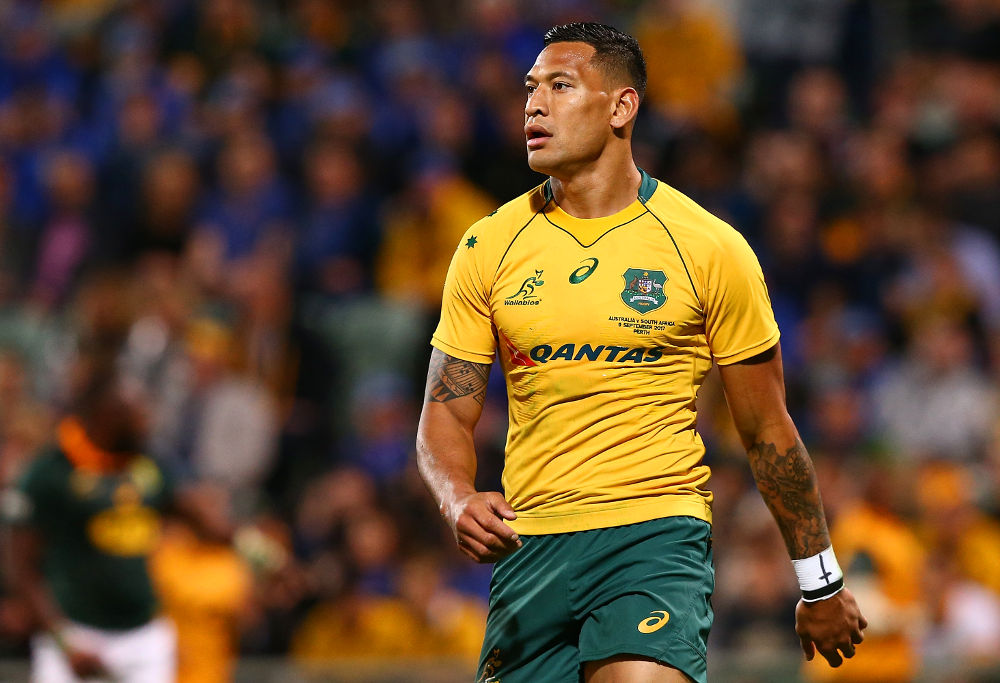
(Photo by Paul Kane/Getty Images)
As Michael Cheika pointed out, there seemed to be a lack of energy in the Wallabies’ play compared to the desperation and commitment they displayed against the Springboks.
Perhaps the quick point-scoring start by the Wallabies (as it did with the All Blacks) lulled the home side into rushing play and trying to score off every movement of the ball.
And there is this consideration, too. There is a tendency for commentators (and I include myself in this category) to see what happens on the field from the viewpoint of their home team.
So the Sunday Telegraph headline highlighted Folau’s mistake in taking on the defence a couple of metres from the try line when a simple catch-and-pass play would have seen Bernard Foley stroll over for a try.
This needs saying, as well, the Pumas defence was magnificent in this final play. A lesser side, or indeed the Pumas of other years, would have folded under the onslaught from the Wallabies.
When Folau stepped in field through two defenders, a third defender, lock Tomas Lavanini (how is this for commitment!), sprinted across and smashed him so hard that the ball was spilled forward.
There is a deeper point that needs to be discussed regarding this incident.
Did Folau not pass because he didn’t have the skills to make the simple transfer?
How many times do we see Folau actually passing a ball?
He virtually never carries the ball in two hands. He tends to tuck it under his arm and run until he is tackled, or not tackled as he did in his run in the 19th minute of play when he beat four defenders on a scything, goose-stepping breakout to score a sensational try.
Folau is a terrific runner. He is a prolific try scorer. He is without equal under the high ball, as he showed during the Test. But he has no passing skills, no kicking skills (despite the AFL training), no positioning insights and no game nous.
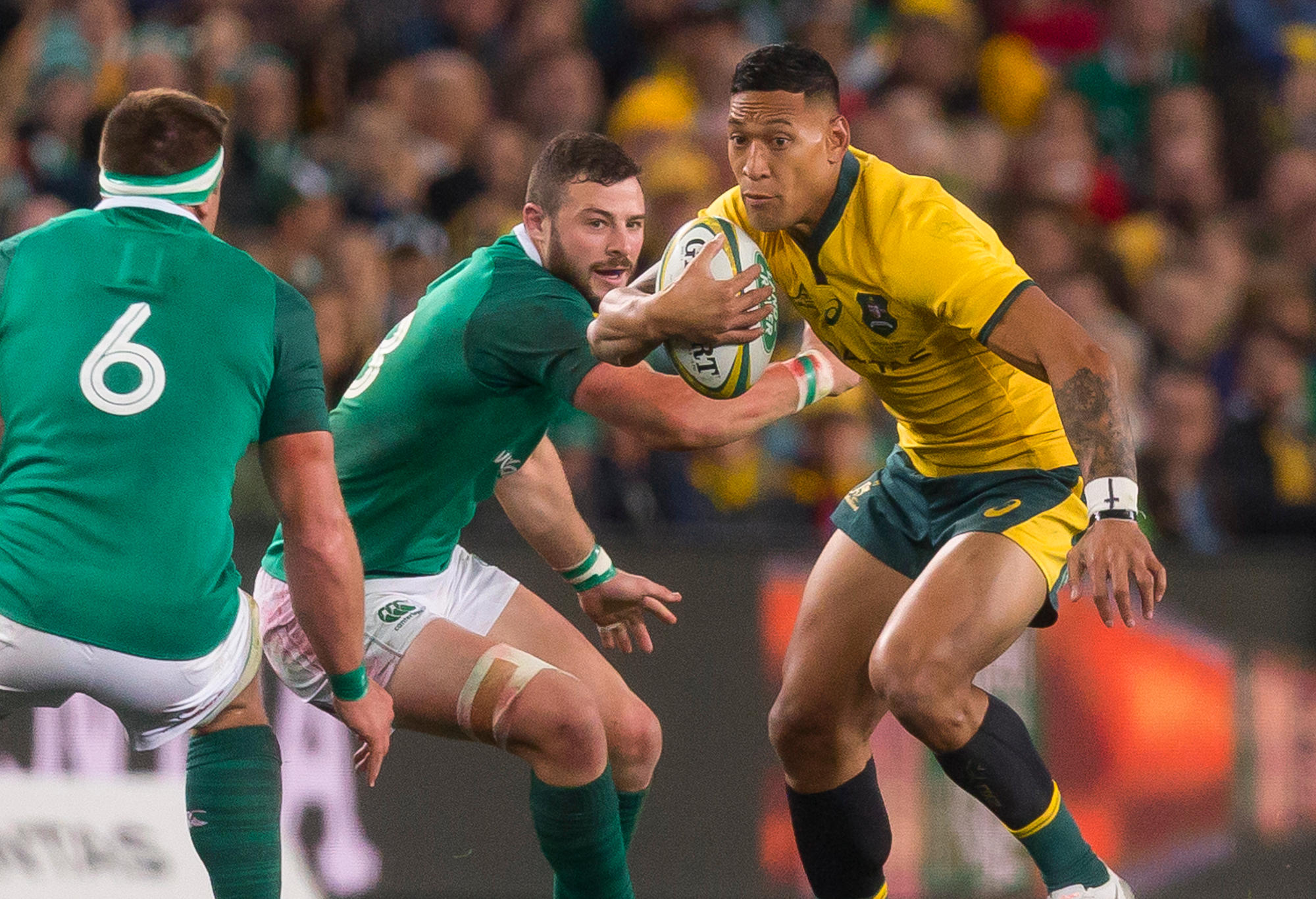
(AAP Image/Craig Golding)
In that last play, his great strengths as a player, his instinct to break the line or attempt to break it with power running, became a weakness.
The play screamed out for a simple catch-and-pass, something that virtually everyone in the Wallabies squad can do.
Everyone, it seems, except Folau.
The point here is that how is it possible that the simple catch-and-pass skill seemingly hasn’t been mastered by Folau? Has he even been drilled in this skill over the years?
Now back to the Pumas. They were not only staunch in defence when it was absolutely required. They were often brilliant on attack, when it was absolutely required.
Nicholas Sanchez, a temperamental playmaker, who was a ‘diver’ early in his career, scored a brilliant try to bring the Pumas back in the Test after conceding early 7-3 and 14-10 leads.
Then there was the brilliant try quicksilver winger Bautista Delguy scored after a breakout from inside the Pumas’ half by Pablo Matera.
The Pumas are developing a formidable mix of aggressive, hard tackling and running forwards, driven around the field by a smart, highly skilled playmaker and a back three of pace, high skills and the ability to play brilliantly what looms up before them.
The Pumas showed against the All Blacks that they were a formidable team in the making. The victory over the Wallabies confirmed this.
I thought that Stephen Larkham’s banter earlier in the week about their new and impressive coach Mario Ledesma was not warranted in the light of this performance in New Zealand and their earlier victory over the Springboks in Argentina.
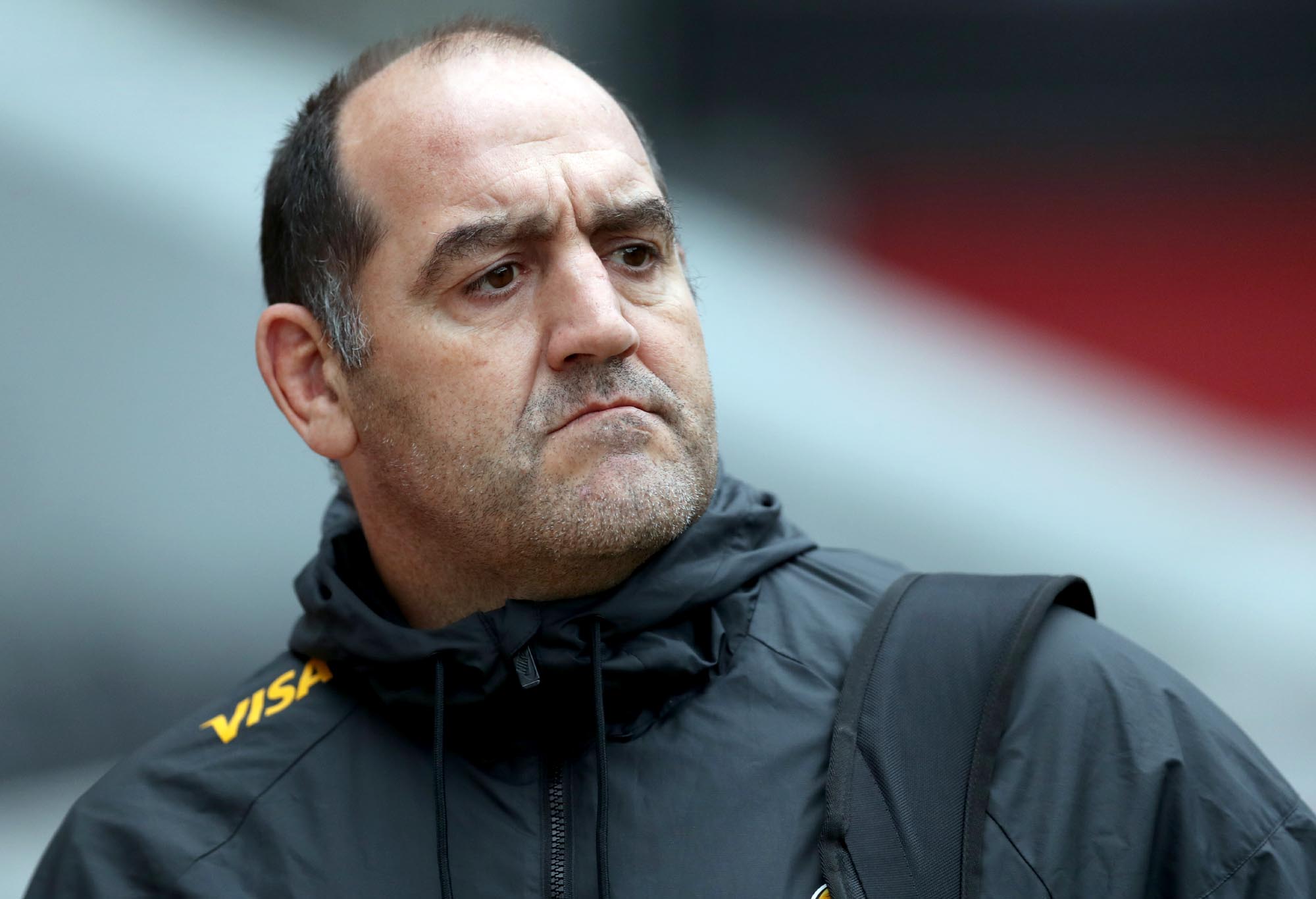
(Photo by Steve Haag/Gallo Images/Getty Images)
Even in jest a coach should not have said the things Larkham said about Ledesma, especially the ill-mannered quip querying his fitness to be a head coach.
Imagine what the outcry would have been if Steve Hansen had said, even in jest, about Cheika or Larkham at the Brumbies that “honestly, I don’t know how he’s a head coach.”
Greg Clark made the point before the Test began that the Wallabies’ attacking record was at its worst level in the 2018 Tests for 30 years. This is hardly an endorsement of Larkham’s ability as the Wallabies attack coach.
The Wallabies now tumble to number 7 on the World Rugby rankings table for international teams, too, their worst result since the official rankings began.
Things are not looking good for the Wallabies’ hopes in the 2019 Rugby World Cup.
On the other hand, the Pumas and the Springboks – by scoring tough victories out of their own countries – have shown that they are capable of winning Tests that ordinarily they have lost over the years.
The Pumas last won in Australia before Saturday night 35 years ago, back in 1983.
The Springboks hadn’t beaten the All Blacks in New Zealand since 2009, when they won twice. The loss, too, was the home side’s first in the Rugby Championship in three years.
The irony in all of this is that senior respected rugby writers around the world, including the veteran Wayne Smith in The Australian (“World must catch up to the Kiwis, lest their dominance kills off any notion of hope”), have seriously argued this nonsensical proposition: “It would be an entirely more fascinating game if the All Blacks didn’t exist, or if they did exist but exerted the same influence as, say, the Black Caps in cricket. Then it would be anyone’s World Cup next year.”
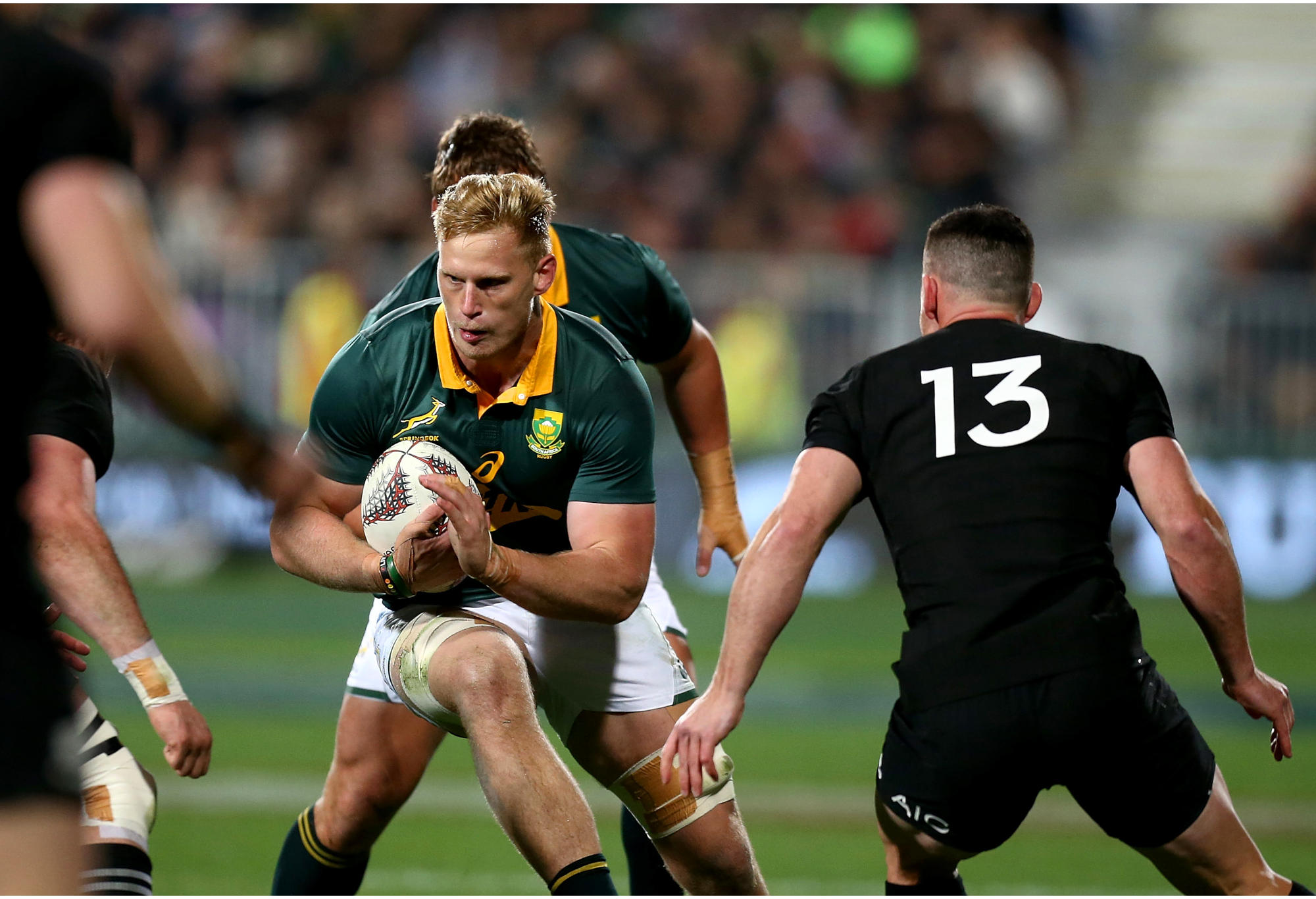
(AAP Image/ David Rowland)
Any who believes this nonsense does not understand that it is virtually impossible to win three Rugby World Cups on the trot.
Only one side has won back-to-back tournaments, the All Blacks in 2011 and 2015.
The Wallabies won their two World Cups with two virtually different sides in 1991 and 1999.
The Springboks, too, collected their two victories with a similar 12-year gap, in 1995 and 2007.
The first two tournaments won by the All Blacks had an even bigger year gap, 1987 and 2011.
On their showings in various tournaments and important one-off Tests, you would say that teams with an evident chance to win the 2019 Rugby World Cup include England, Ireland, South Africa, Argentina and New Zealand.
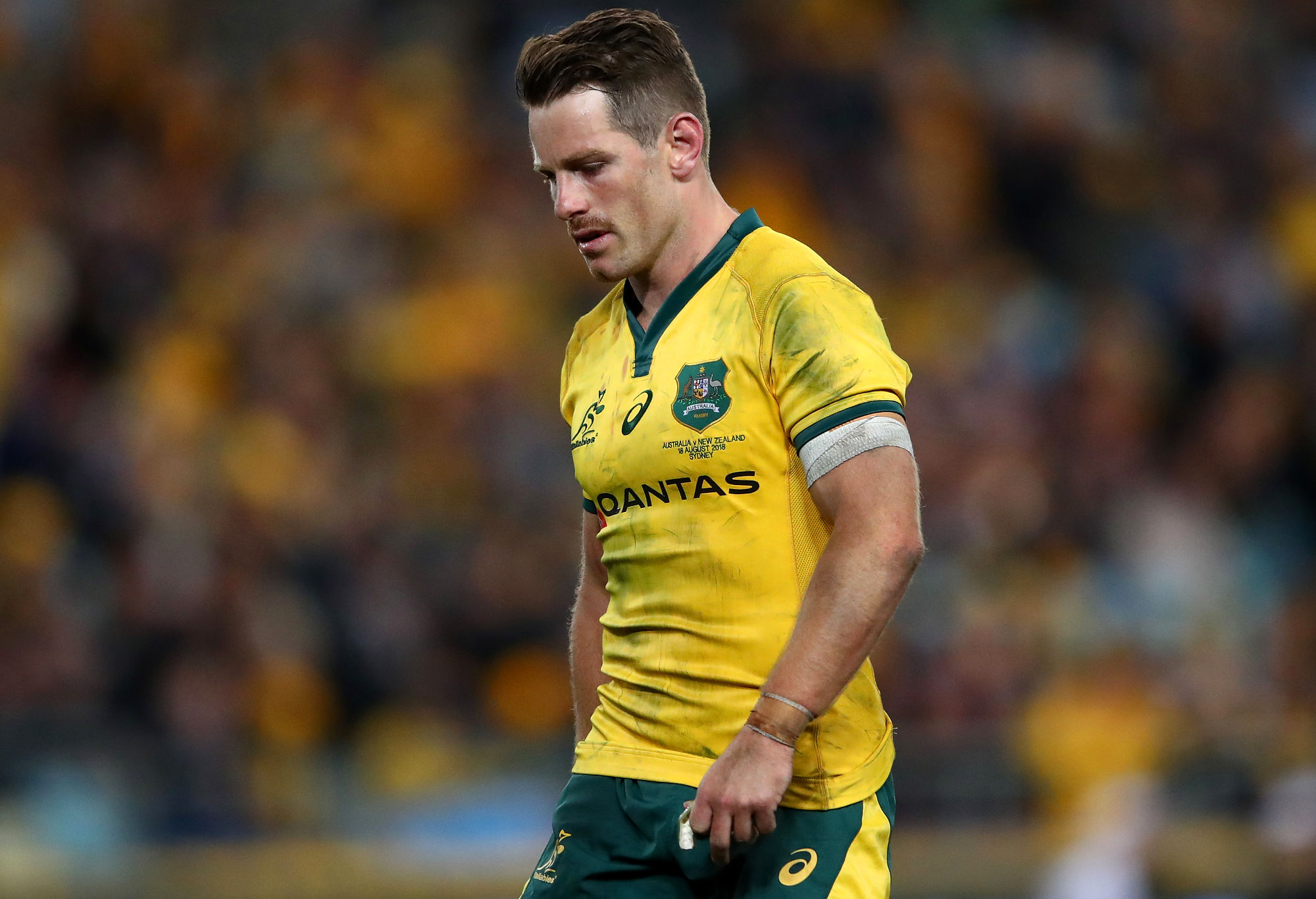
Bernard Foley of the Wallabies looks dejected (Photo by Cameron Spencer/Getty Images)
I would rate Wales, France, Scotland and Australia as teams with an outside chance of winning if everything clicked for them and they had some luck with potential opponents being eliminated.
We need to remember that the Springboks were within a couple of points of defeating the All Blacks in the 2015 semi-final and Scotland were within a couple of minutes of doing the same to the Wallabies.
The worrying thing about all of this is that virtually every team in with a chance, even if it an outside chance, to win in 2019 has had victories and performances that give some hope that they are on the rise.
I say virtually all these team because there is one team, the Wallabies, that seem to have gone backwards this year following on from a disappointing 2017 Test campaign.
You would think that the Wallabies have to win at least one of their coming overseas Tests against the Springboks and the Pumas to change this depressing narrative.

































































































